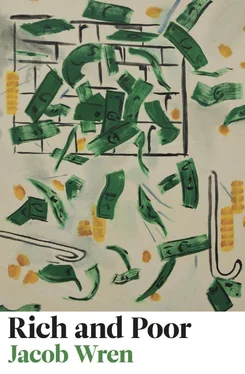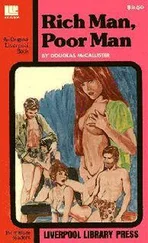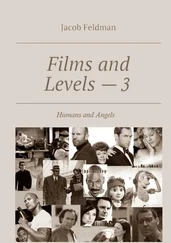There was one particularly tense session that is burned into my memory like my whole life flashing before me. First rumours of new family members seeking their share of the inheritance had just begun to circulate. The enemy second-in-command was visibly agitated, we had caught him by surprise, but he had worse venom to throw in our faces. After some preliminary small talk, he announced that the board had accepted an offer of one hundred and two, and it was time to shift the discussion, to begin talks about who, in the future, was going to manage the company, in what form, on what terms. For the first time in my life I thought I might faint. Even if there was some way to survive, these would be the bastards signing my cheques, calling the shots. I pictured myself following orders, announced I was stepping out of the room, that before we could proceed I needed to speak to each of the board members personally. But at that precise moment I had no intention of phoning anyone. For the past few weeks none of the board members had been returning my calls.
What happened next was without me in the room. I have heard the events described so many times, in so many different ways, that I no longer know what is true and what is pure exaggeration. What I do know is I got in the car and drove, and after twenty minutes of driving took out my phone and called Emmett, who was still embroiled in the session. When Emmett answered I told him we were lost, I’d run out of ideas, all the cards were in their hands, I no longer knew what to do. Emmett addressed me not by my own name but by another, the name of the head of the board. I had no idea what he was up to but tried my best to play along. Yes, the board was planning an emergency meeting for that night. Yes, at midnight. Yes, we were having second thoughts. No, nothing had been signed yet. I was impersonating a man who wouldn’t even return my calls, and for the past twenty years everyone had returned my calls as if their lives depended on it. Then I spent ten minutes outlining the various challenges to the inheritance, as Emmett replied: yes, I see. No, we didn’t know that. Yes, I suspect that would change several aspects of the deal. I said goodbye. I said we would phone him again after our emergency midnight session. I hung up and continued to drive.
Perhaps they would have immediately phoned the board in an attempt to verify our admittedly rather thin play-acting — they certainly must have been suspicious — but at that moment, in the ensuing chaos and yelling, C keeled over and was rushed to hospital. You need a great deal of luck in business just to survive, and apparently our short test-run of threatening phone calls was more effective than we first assumed, could even be said to have overshot the mark. Even with C on his way to the hospital many on their team wanted to continue. Our side of course couldn’t wait to get out of there. At that point, no one from our team had any idea what to make of the phone call. Had our company just been bought out from under us or not?
We worked all night to get the inheritance story onto the front pages of a few small newspapers for the next morning, and made sure each of these papers were hand-delivered to every single member of their team, as well as to each member of our board. For a while we considered printing up a run of fake newsprint, but fortunately this proved unnecessary.
2.
Emmett fed me constant advice on how to win over his former boss. Flattery was possible, but the compliments should be measured and precise, always leavened with just the right touch of humour. Gradually, through trial and error, I learn what makes my new boss laugh, and as I do so he phones more often, looking for distraction, for someone not afraid to take a few gentle shots at him in pursuit of mirth. I can feel him draw closer, but its another six months before I meet him in person.
At that first encounter he takes one look at me, the way he stares making it clear I am not the man he was expecting. I don’t know why I’m in his office. I had hoped we would be alone but there are a dozen of us that morning. It is five a.m. and he stands at his beloved espresso machine, making coffee after coffee, bursting with ideas, energy, and those of us with considerably less experience being awake so early, myself included, scatter around feeling lost, like a pick-up game where no one has remembered to bring a ball. When I introduce myself, I can tell he recognizes my voice, that in his head he has already attached the voice to some other face and body, definitely not the one in front of him. Perhaps he was expecting me to look like Emmett. No one else in the room has the faintest idea who I am.
When we all have our coffees he announces that, from time to time, he likes to bring a random group of executives together to brainstorm, whatever drifts through our heads. I look around; we’re all thinking the same thing: this is hell, a cross between group therapy and a job interview. But you only have once chance to make a good first impression and I’m going to make the most of it. The piano wire is in my pocket. It will do me no good in a room full of others. I have to get him alone. Have to win his trust and then get him alone. Already a few are tossing out ideas, nothing too special, everyone wanting to be seen participating, no one willing to say anything that might be held against them at some later date. “People today don’t want to be consumers anymore,” the one with red hair was explaining, “they want to be in it, part of the game. In a way we need to make them feel like they’re part of the company.”
“Ideas how to do that,” our boss prompts, more jovial and awake than the rest of us put together.
The redhead stands out because of his hair, but so many of the others feel interchangeable, same voices, similar opinions. I should have paid more attention when they were introducing themselves. I stand out and am struggling to own it, take charge of my difference, how I can use it to my advantage. I don’t look the same, don’t have their false confidence, haven’t landed here through normal channels.
“Those scams where the customer can choose the colour of their own car, they’re not enough” one of the suits is saying. I notice our boss flinch at the word ‘scam.’ He doesn’t like it, that isn’t his particular brand of cynicism. His is more jubilant, more opportunist, about what you can grab, never denigrating the people you have to grab it from. I don’t think anyone else notices the flinch as the scam-guy continues: “They need to feel involved, implicated in decisions from day one.”
Redhead interrupts: “People have less money, they’re nervous to make purchases, credit no longer reassures them. It’s like the sweet spot is getting smaller. Every purchase has to feel like the right one, handmade just for them.”
Scam-guy: “I don’t think that’s enough. That’s just a glorified version of the right shade of automobile orange. It’s like if you ask people: do you want your corporation to be more environmentally responsible? Everyone will say yes. But how to make each person feel that their ‘yes’ counts, that theirs is one significant vote in the overall direction of the company. It’s not just about one isolated purchase; it’s more like being part of a family.”
I think back to something Emmett told me. His former boss almost always likes it when someone punctures the air in the room, punctures the pretensions. He likes troublemakers, as long as the trouble isn’t too sharply directed at him. I start my sentence without knowing how it will end: “I think we need to say that the consumers are us. There are no consumers, we are the consumers, and we need to think about what we like. For example, I like being treated with respect, but I also like to spar, a good fight. I like to fight, but only when I’m confident my opponent respects me.”
Читать дальше












